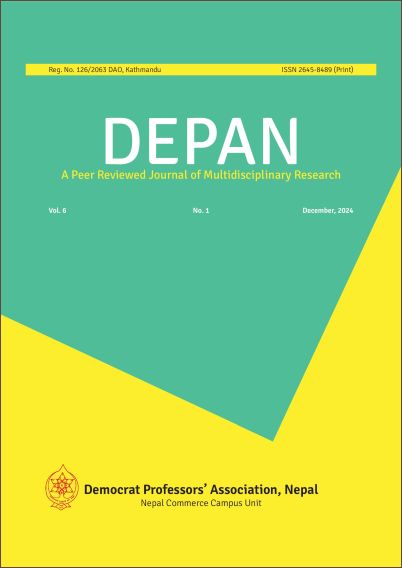The Interplay of Foreign Policy and Democratic Erosion
DOI:
https://doi.org/10.3126/depan.v6i1.75502Keywords:
Democracy, Democratic Backsliding, Economic Decline, Foreign Policy, International Cooperation, Populism, Public TrustAbstract
This paper investigates the intricate relationship between foreign policy and the vitality of democratic systems. It argues that a nation's foreign policy choices can fortify or erode its democratic foundations.
The paper analyzes how misguided foreign policy decisions contribute to the decay of democratic norms and institutions. Employing a case study approach, it examines four critical instances of foreign policy missteps: the U.S. intervention in Iraq, Russia's actions in Ukraine, Saudi Arabia's involvement in Yemen, and China's assertive stance in the Indo-Pacific.
The paper reveals how such foreign policy choices have fueled democratic decline within these nations and destabilized international norms. The repercussions of these missteps extend beyond domestic turmoil and economic instability, potentially damaging a nation's global reputation and eroding public trust.
The findings emphasize the crucial need to ground foreign policy in democratic values. Respecting human rights and engaging with the international community are not merely idealistic pursuits but vital strategies for preserving democracy, promoting prosperity, and fostering global peace. By aligning foreign policy with democratic principles, nations can strengthen their democratic institutions and contribute to a more stable and cooperative world order.
Downloads
Downloads
Published
How to Cite
Issue
Section
License

This work is licensed under a Creative Commons Attribution 4.0 International License.
This license enables reusers to distribute, remix, adapt, and build upon the material in any medium or format, so long as attribution is given to the creator. The license allows for commercial use.




